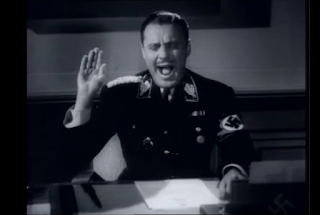THE PART FOR THE WHOLE (RENAISSANCE - QUATTROCENTO)
The part for the whole is a section of the program "Saber y Ganar", maybe you are familiar with it.
With this part of a painting you should tell me:
a) The author. Add some biographical details.
b) Name of the artwork.
c) Name other works by this author.
With this part of a painting you should tell me:
a) The author. Add some biographical details.
b) Name of the artwork.
c) Name other works by this author.



This comment has been removed by a blog administrator.
ReplyDeleteThis comment has been removed by a blog administrator.
ReplyDeletea) The autor is Sandro Botticelli. His name was Alessandro di Mariano Filipepi. He was born in Florence in 1445. He was a famous Italian painter. Was disciple of Fra Filippo Lippi. In 1470 he had his own workshop, and he dedicated all his life to the portraits. The most famous portrait was "Portrait of Giuliano of Medici" in 1475- 1476.
ReplyDeleteHe was dead in Florence in 1510.
b) Name of the artwork: " La Primavera"
c) Name other Works by this autor:
- Adoración de los magos (1465- 1467)
- Virgen con el Niño (1467)
- Retrato de Juliano de Medici (1478)
- Nacimiento de Venus (1484)
- Anunciación (1490)
- La Piedad (1495)
- Crucifixión (1497)
- Natividad mística (1501)
A)The author was Sandro Botticelli.
ReplyDeleteAlessandro Filipepi, know as Sandro Botticelli. (1444-1510) began his career during the Italian Renaissance period. Botticelli was born in Florence around 1445 where he would live out the rest of his life.
B) La primavera(1481-1482)
C) The Birth of Venus.
The Adoration of the Magi.
St. Sebastian.
The Annunciation.
A) Sandro Botticelli (Alessandro di Mariano Filipepi).Is an Italian painter (1445-1470).
ReplyDeleteB) La Primavera.
C) La Anunciación
Nacimiento de Venus
La Piedad
Retrato de Juliano Médico.
a) The autor was Sandro Botticelli
ReplyDeleteb) The spring ( la primavera)
c) The birth of Venus
c.1 the annunciation
c.2 the adoration of the magi
a) The autor was Sandro Botticelli
ReplyDeleteb) The spring ( la primavera)
c) The birth of Venus
c.1 the annunciation
c.2 the adoration of the magi